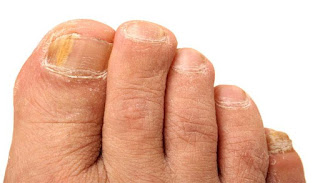The People's Republic of China(PRC) (click here) has a Communist type government. The Communist Party of China is the only political party in China. There are no elections. The party chooses the President and Premier of the Nation.
The founder of communist china, Mao Zedong, had introduced a socialist communist government after defeating the democratic nationalist chinese government led by Chiang Kai-shek.
China, traditionally has been a socialist state, but in past two decades, China had embraced a more capitalist approach. Due to this, China, unlike the Soviet Union, has grown into a massive economy state.
China has two self governed regions - Macau and Hong Kong, which are democratic in a way. PRC also claims sovereignty over Taiwan (Republic of China or ROC) to which the Nationalist Chinese(Kuomintang) fled after mainland china fell to the communist.
The Chinese government has imposed lot of restrictions on areas like Press freedom, internet access, freedom to practice religion, freedom to form organisation, and even on freedom to have children (One child policy). The citizens have a very limited role in electing the head of their nation.
The last great Chinese Dynasty of China was the Qing (Ch'ing) Dynasty from 1644- 1912.

...Mao (click here) left his family to study at a higher primary school in a neighbouring county and then at a secondary school in the provincial capital, Changsha. There he came in contact with new ideas from the West, as formulated by such political and cultural reformers as Liang Qichao and the Nationalist revolutionary Sun Yat-sen. Scarcely had he begun studying revolutionary ideas when a real revolution took place before his very eyes. On October 10, 1911, fighting against the Qing dynasty broke out in Wuchang, and within two weeks the revolt had spread to Changsha.
Enlisting in a unit of the revolutionary army in Hunan, Mao spent six months as a soldier. While he probably had not yet clearly grasped the idea that, as he later put it, “political power grows out of the barrel of a gun,” his first brief military experience at least confirmed his boyhood admiration of military leaders and exploits. In primary school days, his heroes had included not only the great warrior-emperors of the Chinese past but Napoleon I and George Washington as well.
The spring of 1912 marked the birth of the new Chinese republic and the end of Mao’s military service. For a year he drifted from one thing to another, trying, in turn, a police school, a law school, and a business school; he studied history in a secondary school and then spent some months reading many of the classic works of the Western liberal tradition in the provincial library. That period of groping, rather than indicating any lack of decision in Mao’s character, was a reflection of China’s situation at the time. The abolition of the official civil service examination system in 1905 and the piecemeal introduction of Western learning in so-called modern schools had left young people in a state of uncertainty as to what type of training, Chinese or Western, could best prepare them for a career or for service to their country.
Mao eventually graduated from the First Provincial Normal School in Changsha in 1918. While officially an institution of secondary level rather than of higher education, the normal school offered a high standard of instruction in Chinese history, literature, and philosophy as well as in Western ideas....







